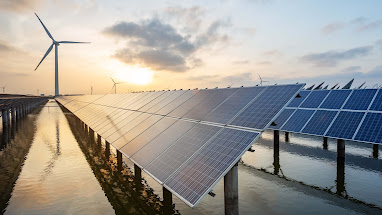The National Secretary of the Network, Uket Obonga, recently shed light on the shortcomings of Nigeria's power privatization in an interview with the News Agency of Nigeria (NAN) in Enugu. Here are the key points he raised:
Inadequate Transmission and Distribution Network: Obonga pointed out that the power privatization initiative has struggled due to a subpar transmission and distribution network. Despite having the capacity to generate 12,000 to 13,000 mega watts, only 5,500 mega watts are reaching Nigerians.
Private Investors with Limited Capacities: He criticized the government for entrusting the power sector to investors who lacked the necessary financial, technical, and managerial capabilities. These investors had to secure loans from commercial banks for their operations, creating a capital-intensive and unsustainable situation.
Short-Term Loans and Wrong Privatization Model: Obonga highlighted the short gestation periods of the loans obtained by private investors, attributing this issue to the wrong privatization model. This flawed approach resulted in investors failing to provide essential tools like meters, leading to inaccurate billing and estimation.
Inefficiency of Regulatory Bodies: He criticized the Nigerian Electricity Regulatory Commission (NERC) for its inefficiency in monitoring and regulating the power sector, necessitating the establishment of the Presidential Power Initiative to review tariffs.
Lack of Infrastructure Development: Obonga lamented the absence of significant investment in power infrastructure for over three decades. He noted that Nigeria's electricity generation and distribution lag behind most West African countries.
Call for Comprehensive Review: To address these challenges, Obonga called for a comprehensive statutory review of the power privatization process. He emphasized the need for healthy competition in the sector to improve services and meet the energy demands of Nigeria's growing population.
In conclusion, Nigeria's power privatization faces significant hurdles that require immediate attention and a revamped approach to ensure a stable and efficient power supply for the nation.





![[Video + Music] Hayya Hayya – Davido – 2022 FIFA World Cup (Better Together)](https://blogger.googleusercontent.com/img/b/R29vZ2xl/AVvXsEgLBRJTPis7aY1Lby_zEm1K2ImkXa7I7Qu8uPUgNm66R0nNOa9n0d8_BXeaGZg9NwL7bPxTUeXKxkr-mu9gZxnEIRGw_kzo-5hPQtM7Rnn1pnDHdJqSIellECBD82zDPZSlu9Fk1szMXRAVaSW3xggIud0gH1PJ47k36iOPUe_36RTetW3rLmKFIaM6/w72-h72-p-k-no-nu/FIFA-World-Cup-official-soundtrack-Hayya-Hayya-2.jpeg)





0 Comments
We accept all messages and enquiries with joy. We reply messages as fast as possible. Thanks!